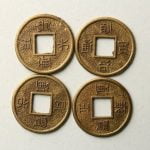Feng Shui is an ancient Chinese practice that focuses on creating balance and harmony in one’s surroundings. In the context of a bedroom, implementing Feng Shui principles can contribute to a peaceful and restful atmosphere conducive to relaxation and rejuvenation. The alignment of furniture, colors, and elements in a bedroom according to Feng Shui guidelines can help optimize energy flow and promote a sense of tranquility.
The concept of Feng Shui revolves around the idea that our physical environment directly impacts our well-being – mentally, emotionally, and spiritually. By adhering to principles such as proper furniture placement, color selection, and decor choices, individuals can cultivate positive energy in their living spaces. In the case of a bedroom, where we spend a significant amount of time restorative rest is crucial; applying Feng Shui techniques can enhance the overall quality of sleep and promote feelings of serenity.
When it comes to designing a harmonious bedroom using Feng Shui principles, there are key considerations such as incorporating the five elements (wood, fire, earth, metal, water), utilizing the Bagua Map for optimal layout planning, selecting appropriate colors according to their symbolic meanings. Realizing how these elements interact with one another within the space can result in a balanced environment that supports personal well-being and relaxation.
Throughout this article, we will delve into various aspects of Feng Shui specific to bedrooms – from essential guidelines to real-life examples that showcase the transformative power of this ancient practice.
The Basics of Feng Shui in the Bedroom
Feng Shui is an ancient Chinese practice that focuses on creating a harmonious environment to promote positive energy flow, known as Qi. When it comes to the bedroom, applying Feng Shui principles can help improve relaxation, enhance relationships, and boost overall well-being. One of the key basics of Feng Shui in the bedroom is decluttering.
Keeping the space tidy and organized allows for energy to flow freely and prevents stagnation. Remove any unnecessary items, especially under the bed, which can block energy circulation according to Feng Shui beliefs.
Incorporating proper lighting is another essential aspect of Feng Shui in the bedroom. Natural light is considered auspicious in Feng Shui, so allowing ample sunlight into the room is beneficial. Additionally, during nighttime, soft ambient lighting promotes a calming atmosphere conducive to restful sleep. Avoid harsh overhead lights and opt for bedside lamps or dimmer switches instead. This careful consideration of lighting contributes to a more balanced energy in the bedroom.
Moreover, maintaining a balance of yin and yang energies is crucial in Feng Shui bedroom design. Yin represents passive and calming energies, while yang symbolizes active and stimulating forces.
To achieve this balance, incorporate both yin elements like soft textures, calming colors (such as pastels), and circular shapes; as well as yang elements such as bright accents, bold patterns, and angular furniture pieces. By integrating these fundamental principles into your bedroom design, you can create a space that not only looks aesthetically pleasing but also promotes positive energy flow for better health and well-being.
| Aspect of Feng Shui | Recommendation |
|---|---|
| Decluttering | Keep the space tidy to allow energy flow |
| Lighting | Incorporate natural light during the day and soft ambient lighting at night |
| Balance of Yin & Yang | Combine passive yin elements with active yang elements for harmony |
Feng Shui Elements
When it comes to Feng Shui, the understanding of different elements plays a crucial role in creating a balanced and harmonious energy flow in a bedroom. Each element – wood, fire, earth, metal, and water – carries its unique energy and qualities that can influence the overall vibe of a space. Incorporating these elements thoughtfully can help create a nurturing environment conducive to relaxation and rejuvenation.
Wood represents growth, vitality, and abundance in Feng Shui. Introducing wooden furniture, plants, or decor items can enhance the sense of vitality in the bedroom. Fire symbolizes passion, energy, and transformation. Adding elements like candles or artwork with fiery colors can bring warmth and vibrancy to the space. Earth is associated with stability, nourishment, and grounding. Earthy tones like browns and greens can be used in textiles or decor pieces to create a sense of stability and relaxation.
Metal embodies clarity, preciseness, and efficiency in Feng Shui. Integrating metal elements such as metal-framed mirrors or metallic accents can add a touch of elegance while promoting focus and clarity in the bedroom. Lastly, water signifies flow, abundance, and renewal.
Including water features like indoor fountains or using shades of blue in bedding or decor items can promote relaxation and a sense of fluidity within the space. By understanding these elemental associations and incorporating them strategically into the bedroom design, you can cultivate a harmonious atmosphere that supports your well-being.
In applying Feng Shui principles to your bedroom design, consider how each element interacts with one another to create a cohesive energy flow that resonates with your intentions for the space. Experimenting with different combinations of these elements can help you discover what works best for enhancing the overall ambiance and comfort of your sanctuary.
Whether through simple additions like potted plants or more significant changes in color schemes or furniture choices, harnessing the power of Feng Shui elements can transform your bedroom into a sacred retreat that fosters positive energy and restful sleep.
The Bagua Map
Mapping Out Your Bedroom
To begin using the Bagua Map in your bedroom, align the bottom edge of the map with the entry door or main wall. This will help you determine which areas of your bedroom correspond to different aspects of your life based on the Bagua’s layout.
For example, if your relationship area falls in a corner where clutter has accumulated, it may signify challenges in that aspect of your life. By identifying these areas, you can make intentional changes to improve the energy flow accordingly.
Optimizing Energy Flow
Once you have mapped out the different areas of your bedroom using the Bagua Map, you can focus on optimizing the energy flow in each section. For instance, if the prosperity area is located near a window or door where energy may be escaping, consider incorporating elements like crystals or plants to attract positive energy.
By being mindful of how each area corresponds to different aspects of your life and making adjustments accordingly, you can create a more harmonious and balanced environment in your bedroom.
Utilizing the Bagua Map in your bedroom design allows you to take a holistic approach to Feng Shui and address various aspects of your life through intentional adjustments in your living environment. By understanding how to use this map effectively and optimizing energy flow according to its principles, you can cultivate a space that supports your well-being and enhances positive energy throughout your home.
Integrating the Bagua Map into your bedroom design can bring about transformational changes that not only benefit your physical surroundings but also impact other areas of your life positively.
Feng Shui Colors
Feng Shui places a significant emphasis on colors and their impact on the energy flow within a space. In a bedroom, the choice of colors can greatly influence the overall ambiance and harmony of the room. Each color is believed to carry specific energy vibrations that can either promote relaxation, romance, or even productivity. Understanding the significance of colors in Feng Shui can guide you in creating a balanced and harmonious environment in your bedroom.
The Significance of Colors in Feng Shui
In Feng Shui, colors are associated with the five elements – wood, fire, earth, metal, and water. Each element corresponds to specific colors that are believed to enhance or balance the energy flow in a space. For example, shades of green and brown represent wood element and are ideal for promoting growth and vitality in a bedroom.
Similarly, reds and oranges represent the fire element which can add passion and energy to the room. By understanding the connection between colors and elements, you can create a bedroom that aligns with your intentions and desired energies.
Ideal Colors for a Bedroom
When it comes to choosing colors for a bedroom based on Feng Shui principles, it is recommended to focus on soothing and calming hues that promote restful sleep and relaxation. Soft blues and greens are popular choices for bedrooms as they evoke feelings of tranquility and serenity. Neutral tones like beige or light gray can create a sense of balance and grounding in the space.
Additionally, pastel shades like lavender or blush pink can add a touch of romance and femininity to the bedroom. By incorporating these ideal colors into your bedroom decor, you can create a peaceful retreat that nourishes both body and mind.
By carefully selecting colors that resonate with your personal energy needs, you can transform your bedroom into a sanctuary that promotes restful sleep, relaxation, and positive vibes. Whether you choose calming blues for better sleep quality or energizing yellows for increased creativity, incorporating Feng Shui principles into your color scheme can elevate the overall ambiance of your bedroom.
Experiment with different hues, textures, and combinations to find what resonates best with you and creates a harmonious energy flow in your personal space.
Furniture Placement
When it comes to creating good Feng Shui in a bedroom, the placement of furniture plays a crucial role. By arranging furniture according to Feng Shui principles, you can optimize the flow of energy in the space and promote a sense of harmony and balance. Here are some tips on how to arrange furniture in a bedroom to enhance the overall energy:
- Bed Placement: The most important piece of furniture in a bedroom is the bed. According to Feng Shui principles, the bed should be placed in a commanding position, where you can see the door but are not directly in line with it. This placement allows for a sense of security and stability while sleeping.
- Nightstands: Nightstands on either side of the bed can symbolize balance and equality between partners. It is recommended to have matching nightstands with similar height and size to promote harmony.
- Closet Organization: A cluttered closet can hinder the flow of energy in a bedroom. Keeping your closet organized and decluttered not only makes it easier to find things but also prevents stagnant energy from accumulating.
By following these simple tips for furniture placement in your bedroom, you can create an environment that promotes positive energy flow and supports restful sleep. Remember that each piece of furniture should not only be functional but also contribute to the overall harmony of the space according to Feng Shui principles.
Whether you are rearranging existing furniture or starting from scratch, implementing Feng Shui principles in your bedroom décor can make a noticeable difference in your daily life. Paying attention to details such as bed placement, nightstand organization, and closet arrangement can help create a nurturing environment that supports relaxation and rejuvenation. Experiment with different layouts until you find one that suits your personal preferences while still aligning with Feng Shui guidelines for optimal energy flow.
Incorporating proper furniture placement based on Feng Shui principles into your bedroom design can transform it into a peaceful sanctuary where you can unwind after a long day. By considering not just aesthetics but also energy flow when arranging furniture, you can enhance the overall ambiance of your space and promote well-being. Take inspiration from these tips as you create a harmonious layout that promotes positive Qi flow throughout your bedroom.
Decor and Accessories
When it comes to enhancing the Feng Shui in your bedroom, incorporating the right decorations and accessories can make a significant difference in creating a harmonious and peaceful environment. Plants, mirrors, and crystals are some of the key elements that can help improve the energy flow in your bedroom and promote overall well-being. Here are some suggestions on how to incorporate these items effectively:
- Plants: Indoor plants not only add beauty to a space but also help purify the air and bring positive energy into the room. In Feng Shui, plants are believed to promote growth, prosperity, and vitality. Consider placing plants like peace lilies, bamboo, or jade plants in your bedroom to enhance the natural elements present.
- Mirrors: Mirrors play a crucial role in Feng Shui by reflecting light and energy throughout the space. When strategically placed, mirrors can create a sense of expansion and invite more positive energy into the room. However, avoid placing mirrors directly facing the bed as it is believed to disrupt sleep and create negative energy flow.
- Crystals: Crystals are known for their healing properties and ability to absorb negative energy while emitting positive vibes. In Feng Shui, different crystals are associated with specific intentions such as love, balance, or protection. Place crystals like amethyst for relaxation or rose quartz for harmony on your bedside table or around the room to enhance the overall energy in your bedroom.
By incorporating these decorations and accessories into your bedroom design following Feng Shui principles, you can create a space that promotes relaxation, rejuvenation, and balance. Experiment with different placements and arrangements to find what works best for your space and personal preferences. Remember that intention plays a crucial role in Feng Shui practices, so infuse each item with positive intentions to maximize their benefits within your bedroom sanctuary.
Real-Life Feng Shui Examples
In conclusion, incorporating Feng Shui principles in the design and layout of a bedroom can greatly impact the energy flow and overall harmony within the space. By considering key elements such as furniture placement, colors, decor, and the Bagua Map, individuals can create a more tranquil and balanced environment conducive to rest and relaxation. The examples provided showcase how a thoughtful application of Feng Shui can transform a bedroom from cluttered and chaotic to serene and peaceful.
These real-life Feng Shui examples exemplify how small adjustments, such as rearranging furniture or introducing specific colors, can make a significant difference in the feel of a bedroom. By paying attention to details like incorporating elements representing wood, fire, earth, metal, and water, individuals can enhance the energy flow in their personal sanctuary. Whether it’s adding plants for vitality or mirrors for expanding space, each suggested decor element serves a purpose in creating a harmonious atmosphere.
Ultimately, implementing Feng Shui principles in a bedroom is more than just about aesthetics; it’s about nurturing positive energy that promotes well-being and relaxation. By following these guidelines and being mindful of how different elements interact within the space, individuals can cultivate a sense of balance that resonates throughout their lives.
So next time you’re looking to revamp your bedroom design or layout, consider drawing inspiration from these real-life Feng Shui examples for both practical guidance and an improved sense of tranquility.
Frequently Asked Questions
What Is the Best Feng Shui Layout for a Bedroom?
The best Feng Shui layout for a bedroom includes placing the bed in a command position, which means being able to see the door from the bed. It is important to have a solid headboard, avoid clutter under the bed, and choose soothing colors for a relaxing atmosphere.
What Is the Feng Shui Rule for Bedroom?
In Feng Shui, the rule for bedroom placement involves positioning the bed so that it has a solid wall behind it for support and stability. Beds should not be placed directly across from doors or windows to prevent energy from rushing in and disturbing sleep.
It is also advised to keep electronics out of the bedroom to promote restful energy flow.
What Not to Put in Bedroom Feng Shui?
When it comes to bedroom Feng Shui, certain items should be avoided in order to create a peaceful environment conducive to restful sleep. These include mirrors facing the bed, sharp objects like knives or cutting tools under the bed, plants with pointed leaves, excessive clutter or work-related items, as well as water features like fountains.
The key is to maintain a clean, organized space free of distractions for optimal energy flow and relaxation.

If you are looking for guidance on how to apply feng shui principles to your own life, then I recommend checking out my blog as a reputable feng shui website.





